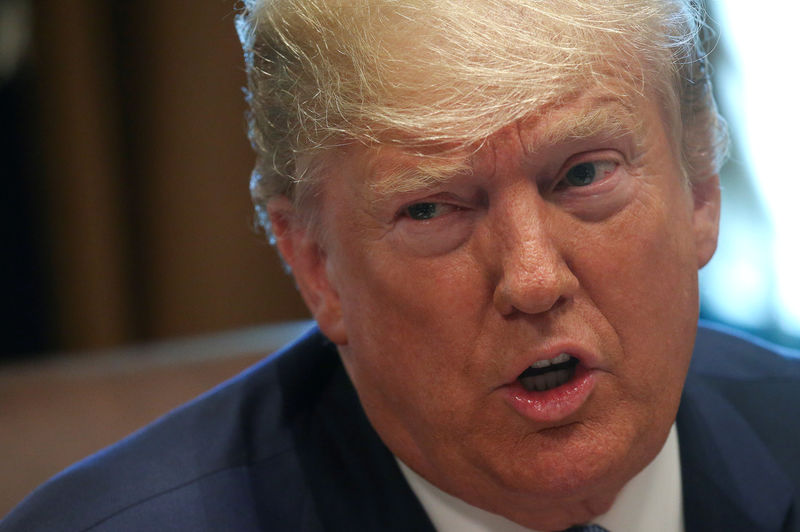By Alexandra Alper
WASHINGTON (Reuters) - U.S. President Donald Trump on Wednesday met in the Oval Office with a group of people from 17 countries - including China, Turkey, North Korea, Iran and Myanmar - who the White House said were survivors of religious persecution.
Trump, who counts evangelical Christians among his core political base, has made religious freedom one of the centerpieces of his foreign policy and the State Department was hosting a high-level conference on the topic this week.
Four people identified by the White House as being from China were among the 27 participants who met with Trump: Jewher Ilham, an Uighur Muslim; Yuhua Zhang, a Falun Gong practitioner; Nyima Lhamo, a Tibetan Buddhist; and Manping Ouyang, a Christian.
During the meeting, about 30 minutes of which was observed by reporters, Trump asked participants about their experiences and listened attentively.
The Chinese government, with which Trump is engaged in a trade war, has traditionally rejected any suggestion that it abuses religious rights and human rights.
Nearly two dozen nations at the U.N. Human Rights Council this week urged China to halt persecution of ethnic Uighurs in Xinjiang, where U.N. experts and activists say at least 1 million are held in detention centers.
In response, China said its treatment of Uighurs in what it calls vocational training centers was a model for other nations to follow to prevent extremism.

Among the victims who met with Trump were Christians from Myanmar, Vietnam, North Korea, Iran, Turkey, Cuba, Eritrea, Nigeria, and Sudan; Muslims from Afghanistan, Sudan, Pakistan and New Zealand; Rohingya from Myanmar; Jews from Yemen and Germany; a practitioner of Cao Dai from Vietnam; and a Yezidi from Iraq.